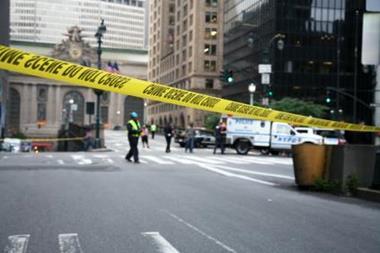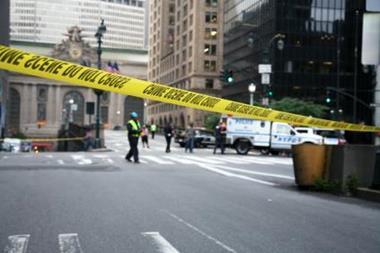New report finds businesses are better protected with the Terrorism Risk Insurance Act in place
Taxpayers save money and businesses are better protected with the Terrorism Risk Insurance Act (TRIA) in place than if the act was allowed to expire, according to a new study.
The analysis found that TRIA, authorized by Congress following the attacks of Sept. 11, 2001, allows the insurance industry to play a larger role in compensating losses caused by smaller — and presumed more likely –terrorist attacks by transferring some of the risk for the largest attack to the government.
The study was conducted by the nonprofit RAND center for terrorism risk management policy.
Legislation is currently being considered by Congress that would extend and modify TRIA. The proposed legislation would require insurers to offer coverage for NCBR (nuclear, chemical, biological and radiological) attacks and includes several additional provisions that transfer some of the risk for attacks on the scale of 9/11 or larger to the government.
The RAND study compares the performance of the current TRIA program and several alternative government interventions in the market for terrorism insurance over a wide range of scenarios.
The key findings include:
• TRIA as currently configured has positive effects on the insurance market for conventional terrorist attacks. The proportion of property insurance policies with terrorism coverage is higher and uncompensated losses are lower for conventional attacks with TRIA than without TRIA.
• For conventional attacks resulting in less than $40bn in property and workers' compensation losses (which is larger than 9/11), TRIA typically reduces taxpayer cost because government outlays through the program are more than offset by reductions in government compensation for uninsured losses after an attack. TRIA also increases the role the insurance industry plays in providing compensation for such attacks, as opposed to the role of insurance without TRIA in effect.
Lloyd Dixon, a RAND economist and study co-author: “Overall, TRIA improves the functioning of private insurance markets and ultimately saves the taxpayers money because it transfers risk for the largest terrorist attacks to the government. In return, the insurance industry is able to play a larger role in compensating losses caused by smaller, and more likely, attacks.”
Dixon said a gap remains in the nation's ability to manage terrorism risk because the coverage for NBCR attacks is rarely available even with the current TRIA program. Thus, the RAND study examined possible changes to TRIA that would require insurers to offer policies that cover losses due to both conventional and NBCR attacks.
The study, finds that increasing assurances that insurers will not be liable for insured losses over the current $100bn TRIA cap and lowering the amount that insurers would have to pay before government support would be available (the so-called “deductible”) could improve outcomes for a program requiring insurers to offer policies that cover both conventional and NCBR attacks.
Study co-author Robert Lempert, said: “Hardening the cap and reducing the deductible are both important to getting the best result from a TRIA program that includes NCBR coverage. It's a robust strategy that effectively addresses the existing insurer uncertainty over how exposed they are to losses over the cap.”




















No comments yet